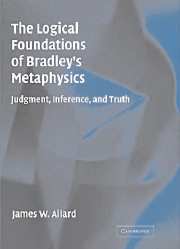1 - Faith, Idealism, and Logic
Published online by Cambridge University Press: 04 September 2009
Summary
Lord Macaulay, man of letters, member of Parliament, the only historian ever raised to the peerage on the strength of his work, recorded in his diary in 1852 his first and only attempt to read Kant's Critique of Pure Reason.
I received today a translation of Kant. … I tried to read it, but found it utterly unintelligible, just as if it had been written in Sanscrit. Not one word of it gave me anything like an idea except a Latin quotation from Persius. It seems to me that it ought to be possible to explain a true theory of metaphysics in words that I can understand. I can understand Locke, and Berkeley, and Hume, and Reid, and Stewart. I can understand Cicero's Academics, and most of Plato; and it seems odd that in a book on the elements of metaphysics … I should not be able to comprehend a word.
(Blanshard 1954, 1, quoting Trevelyan 1923, 515)Despite this reaction from one of Britain's leading intellectuals, in twenty-five years the philosophy of Kant and, more amazing still, Hegel had progressed from being unintelligible to providing much of the metaphysical backbone of the dominant philosophy. It supplanted both empiricism and the Scottish philosophy of common sense, while claiming possession of articulate bands of followers at Glasgow and Oxford. This change in the philosophical climate was certainly not the result of the attractive style in which German philosophy was written.
- Type
- Chapter
- Information
- The Logical Foundations of Bradley's MetaphysicsJudgment, Inference, and Truth, pp. 1 - 23Publisher: Cambridge University PressPrint publication year: 2004

